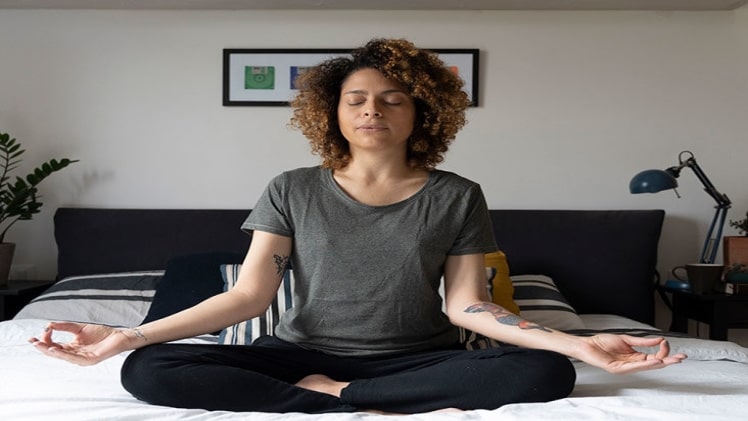There’s a common joke which suggests that ‘the apparent absence of stress is, in itself, a distinct form of stress.’ This statement isn’t too far from the truth, considering that stress is an inseparable part of the human experience. Even animals get stressed every so often.
Feelings of stress have a way of resolving themselves. But when these feelings persist even in the absence of their triggers, the condition is no longer considered stress but anxiety.
But just what is anxiety, and how is the condition manageable? This post sheds more light on that.
Read on for a comprehensive guide into anxiety, focusing on how to cope with this potentially life-threatening mental condition.
Photo Credit: Pixabay.com
What Is Anxiety?
Anxiety is defined as prolonged feelings of stress even in the absence of triggers. As we’ve just indicated, anxiety is usually a long-term side effect of stress. The two conditions also generally produce the same symptoms.
However, anxiety could also result from various underlying illnesses. If untreated, the condition might degenerate into full-blown anxiety disorders.
Types of Anxiety Disorders
Generalized Anxiety Disorder (GAD)
Generalized anxiety disorder is the most commonly diagnosed anxiety disorder. The condition produces general anxiety symptoms, including irritability and elevated heart rate.
Post-traumatic Stress Disorder (PTSD)
Another common anxiety disorder, PTSD, mainly affects people who’ve been in traumatic experiences. Common victims include child abuse survivors, spouse abuse victims, genocide survivors, soldiers previously involved in close-combat warfare.
Social Anxiety Disorder (SAD)
Social anxiety disorder is an anxiety-related condition marked by irrational fears of being in public places. People with SAD will intentionally avoid venturing into public areas or making public presentations. They prefer more secluded environments, preferably hanging out with friends or relatives in their innermost social circles.
Panic Disorder (PD)
As the name implies, panic disorder is marked by panic attacks. People suffering from PD may often think they’re having a heart attack or dying.
Obsessive-Compulsive Disorder
This anxiety disorder is more common in children than adults. The condition mainly presents in repetitive, compulsive behavioral patterns.
Anxiety Causes
- Hormonal imbalances in the body
- Life experiences
- Certain environmental factors, such as working under stressful conditions
- Chronic pain
- Chronic insomnia
- Certain medical conditions, including diabetes, heart disease, thyroid problems, and respiratory disorders
- Certain medications, such as birth control pills
- Drug/alcohol misuse or withdrawal
Anxiety Symptoms
Anxiety symptoms vary in number and intensity from one person to another. The severity of the symptoms may also depend on the underlying trigger and how long the condition has lasted without medical interventions.
However, most people will report the following symptoms;
- Irritability or restlessness
- Elevated heart rate
- Hyperventilation (rapid breathing)
- Hyperhidrosis (excessive sweating)
- Trembling or tingling
- Muscle tension
- Fatigue
- Trouble speaking or thinking
- Reduced hand-eye coordination
If untreated, anxiety symptoms could interfere with your daily activity. You may begin to notice a decline in your workplace productivity and an inability to connect with your family and friends.
Fortunately, there are several ways to treat anxiety or make the condition bearable.
Photo Credit: Pixabay.com
4 Ways to Cope With Anxiety
Consider Anxiolytic Herbs
Anxiolytic herbs are plants that contain anti-anxiety properties. Notable examples include ashwagandha, lavender, chamomile, and cannabis.
Cannabis has garnered widespread recognition in the recent past for its medicinal properties. The herb produces several medically valuable compounds, including the mind-altering chemical tetrahydrocannabinol (THC).
Using THC-based products, such as THC gummies and oral tinctures, may relieve anxiety by increasing your brain’s sensitivity to happiness-inducing neurotransmitters like serotonin. Besides treating pressure, other significant THC health benefits include reducing pain, alleviating inflammation, inducing appetite, and managing nausea.
Photo Credit: Pixabay.com
Try Aromatherapy
Aromatherapy is a reasonably ancient concept that has gradually found its place in the modern alternative medicine sector. This practice involves inhaling aromatic compounds to treat various medical ailments, including anxiety.
Aromatherapy relieves stress by altering certain brain waves. The treatment can also decrease cortisol levels increase self-contentment while aiding sleep.
And the best part is that there are plenty of products to experiment with. Examples include essential oils, candles, and bath products.
Hit the Gym
Exercise’s significant role in helping cope with anxiety cannot be overemphasized. For starters, exercise improves your body’s ability to utilize oxygen. Working out also boosts your blood flow.
Improved blood circulation, coupled with enhanced oxygen supply to various body parts, can increase the brain’s endorphin signaling. Endorphins are “feel-good” neurotransmitters associated with the “runner’s high.”
So, if you’re suffering from any anxiety disorder and don’t already have a workout plan in place, now’s the time to hit the gym. Alternatively, you can opt for joint aerobic exercises like running, jogging, and swimming.
Photo Credit: Pixabay.com
Incorporate Some Yoga and meditation Into Your Routine
Yoga and meditation are famous for their positive effects on blood circulation. That property alone makes them potential anxiety remedies.
But that’s not enough. Yoga and meditation also promote muscle flexibility. That might help relieve any associated tension or pain, ultimately reducing the risks of anxiety.
Yoga and meditation could also trigger the release of endorphins. Plus, they encourage focusing on the present moment – a technique that can help calm racing thoughts.
Final Word
Anxiety is a life-threatening mental condition whose treatment depends on timely interventions. So, even as you endeavor to adopt these anxiety remedies, remember that prevention is always better than cure.

